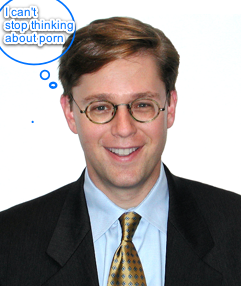
In the waning days of his leadership at the FCC, chairman Kevin J. Martin is trying to push through some striking initiatives in his last chance to leave his mark on the agency. On Election Day, for instance, the FCC approved unlicensed use for white-space TV spectrum (aka, WiFi 2.0) that is being freed up. Now Martin wants to rid the wireless Web of porn.
One of the issues he plans to tackle in upcoming meetings this month, is a plan to give all Americans free access to the Web via the airwaves, minus the porn. Adults would be able to opt back in to get the raw, unfiltered Internet.
The proposal opens the door for the FCC to regulate decency standards on the Web, but only when it is accessed over the airwaves by wireless devices. It would reassert the FCC’s authority in this area, which harkens back to the decency standards it imposes on broadcast TV. This is a bad idea for several reasons.
-
1. The FCC has a hard enough time figuring out what is decent and what is not on 500 channels. It is not equipped to police decency on billions of Websites, even if it relies on automated filters to do most of the work.
2. The rule would apply to only one sliver of spectrum, the AWS-3 band, which nobody really uses yet. It would be like banning porn on fiber-optic IPTV, but not doing anything about it on satellite or cable. If children watching porn is the problem, this will do nothing to stop it.
3. Porn filtering aside, requiring winners of the AWS-3 spectrum auction to give up a quarter of the airwaves they win to set up a free slower-tier wireless Internet service will certainly make those airwaves worth less to any potential bidders. Worse, it could drive away the best potential bidders who might decide it is just not worth their effort or capital.
You’ve got to wonder whether Martin really thinks he can get this passed, or whether he just wants it as a resume stuffer. It’s the kind of thing that plays well on the campaign trail, should Martin decide to run for political office in the future. Why is he bringing this up now for what is ultimately a minor swath of spectrum? If he was serious about eradicating porn on the wireless Web, he should have tried to impose this kind of rule during the last set of auctions for the 700 MHz spectrum. But he didn’t.
Setting up a free tier of wireless Web access is the more interesting part of his proposal. Perhaps a better way to do that would be to set up economic incentives for spectrum winners to offer free tiers of service, rather than mandate it. For instance, why not offer a 25 percent discount to each bid that includes provisions for free Web access that could be supported by advertising. That way the market would sort out what portion should be free and what portion should be paid.